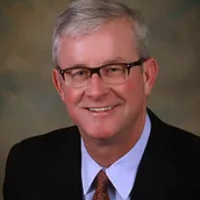Stanton Wills & Probate Lawyer, Kentucky
Includes: Estate Administration, Living Wills, Wills
Joe Francis Childers
✓ VERIFIEDWills & Probate, Estate Planning, Commercial Real Estate, Residential Real Estate
Working to protect Kentucky’s most vulnerable citizens and natural landscapes has long been Joe’s personal and professional passion. As an undergr... (more)
W. Thomas Bunch
Bankruptcy, Business Organization, Estate Administration, Litigation
Status: In Good Standing
Alan B Peck
Wills & Probate, Corporate, Business Organization, Banking & Finance
Status: In Good Standing Licensed: 56 Years
Adele Burt Brown
Wills & Probate, Family Law, Constitutional Law, Civil Rights
Status: In Good Standing Licensed: 46 Years
Caryn L. Belobraidich
Wills & Probate, Consumer Protection, Corporate, Commercial Bankruptcy
Status: In Good Standing Licensed: 31 Years


